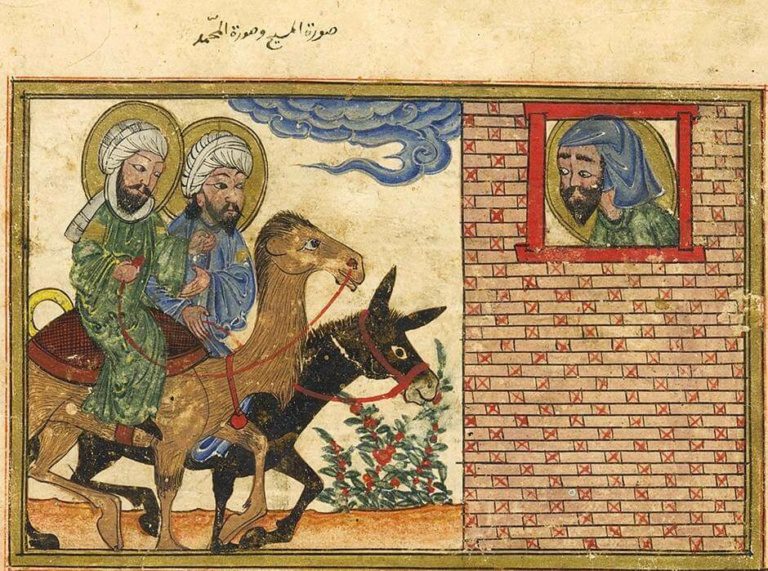In the current difficult state of relations between Muslim and non-Muslim worlds there is no better time than now to reflect on the history of how Islam interacted with other cultural and religious traditions in the medieval past. The geographical epicentre is Iran, spreading out to the whole Persianate world of Persian influence, from Anatolia and Syria to the West, to the Indian Subcontinent to the East, and to Central Asia to the North.
This is a collaborative programme to investigate the reality of interactions between Muslim, Jewish, Christian, Zoroastrian and other traditions in the period of the 7th-15th century CE. The enquiry has its focus on religious, philosophical, and literary themes in the Persianate world, but the evidence of material culture is also keenly relevant. There will be two workshops at the British Academy to discuss papers on a range of subjects from a variety of disciplines.
Major texts of religion and literature testify to the broadmindedness of certain writers – one thinks of the ecumenicism of Yehuda Halevi, Muḥyiddin Ibn al-ʿArabi, Jalāloddin Rumi, and Ibn Kammuna. Another key figure is Al-Biruni, especially in his massive work on India and also his investigation of other faiths in his Chronology of the Ancient Nations. But what were underlying historical and social realities behind these writers and their texts? And were Christian-Muslim relations entirely hostile and embattled? To what extent do the theological and mystical traditions of the period reflect a spirit of toleration of difference and a culture of co-existence? The question of ‘fundamentalism’ and ‘orthodoxy’ also raises its head in the context of all the faith traditions, and to what extent these are latter-day, modern, dogmatic re-inventions and reforms.
One major area of enquiry is influence and interaction between intellectuals of the Abrahamic traditions of Judaism, Christianity and Islam. It is hoped, however, that discussions will also include relations with Zoroastrians, Manichaeans, Buddhists and all traditions with which Muslims were in contact in the period. Much is to be learnt from analysis of polemical and apologetic strategies. Work done on polemic in general has emphasised that one cannot take at face value the literary setting projected by the polemical works themselves: such works usually project themselves as addressed to ‘the other side’, aiming to convince them that they are wrong. Instances of ‘the other side’ reading the polemical work is probably the exception rather than the rule: polemics are actually intended for internal rather than external consumption, and for internal reassurance.

While this is primarily a programme that focuses on religious, philosophical and literary textual material, sociological questions also invite contributions from historians. How, and how much, did different faith communities know about one another? How did contact and the exchange of ideas take place? It is hoped the following can be included in discussions:
- personal friendship – and here the factor of common language is important;
- the majles /disputation;
- informal social interaction;
- the book trade – how texts were circulated;
- attendance at each other’s madrases.
Research questions underlying the project include:
- What were the bonds of commonality between faiths that counterbalanced forces of exclusivism, puritanical legalism and scripturalism?
- What historical instances of aggression, violence and forcible conversion were perpetrated in this period, in any direction?
- What were the divisive issues and forces at work? What has been the on-going legacy of Iranian/Persian culture in this regard?
- What, in particular, do writers of the Persian Sufi and other mystical traditions of the other faiths, have to say on such exclusivity and inclusivity of religion? Did Sufi, Jewish and Christian mystical teachings promote tolerance and unity among religions, and if not, what were the effects of their teachings and activities?
- To what degree are modern fundamentalisms – in particular reformist and traditionalist versions of Islam and Judaism – a reinvention and mythicisation of a medieval past?
Scholars are invited to contribute papers exploring relations between Islam and the other faiths across the following framework and beyond:
- Religious thought in the Persianate world: Theology doctrine and heresy; Law, jurisprudence, ritual and practice, including kashrut and ṭahāra laws; Ecumenicism and influence, polemics and discrimination; Salvation history and myth; roles and treatment of women in inter-faith relations in the medieval religious cultures of the Persianate world; Sectarianism;
- Philosophy in the Persianate world: Faith and reason; Moral philosophy and ethics; Metaphysics and mystical thought; Saʿd ibn Mansur Ibn Kammuna’s Examination of the Three Faiths; Yehuda Halevi and the Kuzari (Kitāb al-khazari /sefer ha-khazari); The philosophical problem posed by concept of toleration itself.
- Literature, cross-fertilisation and influence in the Persianate world;
- The language barrier and role of translation (textual and cultural) between faith communities in the Persianate world.
There will be two workshops comprising papers from scholars working at all levels:
- September 2016 Workshop on the general theme of the project examining the primary issues, points of interaction, conflict and synergy.
- May 2018 Workshop focusing on Islamic-Jewish interactions and Islamic-Christian interactions in the medieval period.